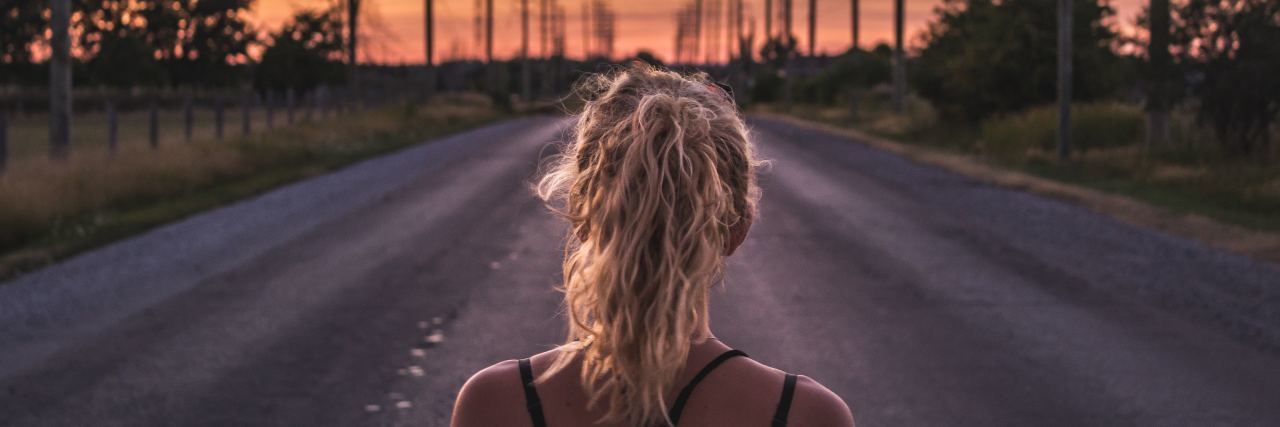How I Found Self-Acceptance When My Mental Illness Diagnosis Changed
Whether we mean to or not, some of us with mental illness consider our diagnoses to be an important part of who we are.
I was diagnosed with bipolar disorder when I was 14. I was also diagnosed with generalized anxiety disorder (GAD) and social anxiety disorder, but bipolar was the diagnosis that explained my most troubling symptoms — depression, mania, hallucinations, rapid cycling between moods and my inclination to self-harm. I researched everything about bipolar disorder when I was diagnosed. I worked hard to destigmatize bipolar disorder among my friend group. I wrote compelling blog posts and was never shy about sharing my diagnosis to change someone’s perceptions of what a bipolar person was like. One thing always bothered me, though. I hallucinated a lot. I hallucinated outside major mood episodes, which I knew from all my research was not typical of bipolar disorder. I experienced auditory, visual and tactile hallucinations on a regular basis, which I knew was odd. (Tactile hallucinations, by the way, are when you hallucinate a physical sensation.) Bipolar disorder, though, was a part of my identity. I was afraid of what would happen if my diagnosis was wrong. Could I really start all over with personally accepting, researching and actively destigmatizing a whole new mental illness?
Whether we like to admit it or not, our diagnoses are not always foolproof. Psychiatrists are not infallible, the diagnostic test is not always conclusive, sometimes new symptoms can emerge, the criteria of a certain diagnosis changes or something is added to the DSM that was not there before or was categorized differently. Like it or not, our diagnoses can change. Mine did. It was changed to schizoaffective disorder, and I was shocked.
Schizoaffective disorder, if you don’t already know, is a combination of a psychotic disorder (such as schizophrenia) and a mood disorder (such as bipolar). They determined I have schizoaffective disorder — bipolar type; my original diagnosis wasn’t wrong, just incomplete. It’s treated with antipsychotics and mood stabilizers, not too differently from how bipolar is treated in some cases, and pretty much identically to how I was being treated already. I was still thrown off by my new diagnosis because my old diagnosis of bipolar disorder had become part of who I was. I knew the first step to accepting my new diagnosis was to learn as much as I could about it.
I researched schizoaffective disorder for hours. I can tell you some seriously little-known trivia about schizoaffective disorder now. I haven’t written any blog posts, though. I’ve been very careful about sharing my diagnosis because if people looked at me differently when they learned I had a fairly common mood disorder like bipolar disorder, then how would they react to me having a fairly uncommon psychotic disorder?
But I am writing this today because I am done hiding my new diagnosis, and I am here to tell you that you are worthy of love and respect no matter what your diagnosis is, or how many of them you have, or if they change occasionally, or what kind of meds you take, or whether you find natural treatments effective, or whether you need weekly therapy, or you need all of that plus support groups. We are all human. We are all worthy. We all belong. Our diagnoses can be a great way of communicating our struggles, but they are just one piece of us. We should not let them define us, and we should not hide them from the world. We all have bad days, but when we are at our best, we can destigmatize mental illness and spread information that will inspire others to do the right thing by their mentally ill friends and family.
My name is Justine. I am 28 years old. I have schizoaffective disorder — bipolar type, generalized anxiety disorder, social anxiety disorder and complex post-traumatic stress disorder (C-PTSD). I am a college student pursuing my bachelor’s degree in communications. I am a writer; I write on a freelance basis and I am an author with works in progress. I am a daughter, a sister, a niece, a friend. I have a voice; you do, too. None of us has anything to be ashamed of, no matter what our diagnosis is or how many times we’ve had one change.
Photo by Seth Macey on Unsplash

